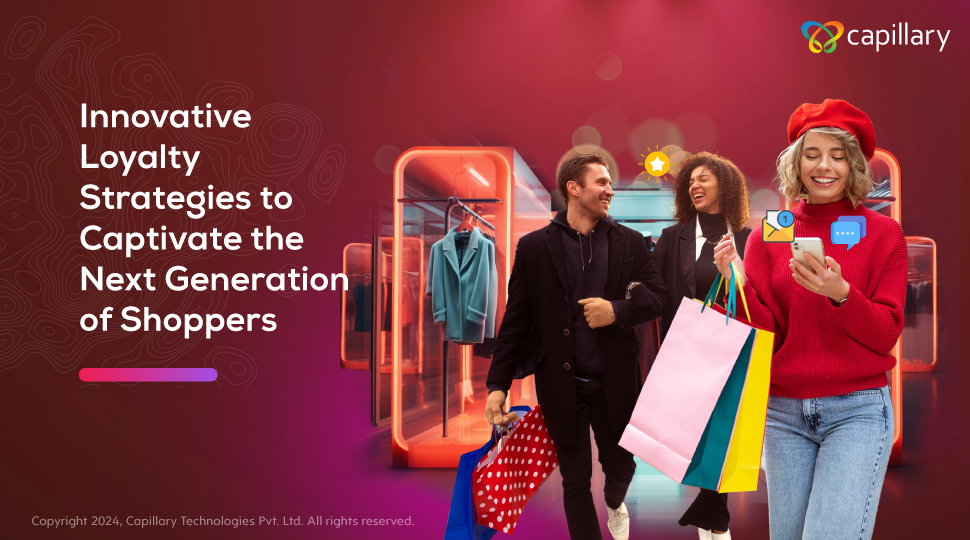- Design industry shaping loyalty programs
- Integrate easily and go live quicker
- Deliver hyper-personalized consumer experiences
Blue Rewards from Al Futtaim Group Shares Loyalty Success Stories and Evolution. Watch Podcast >
Capillary Announces 2nd Annual Captivate 2025 Summit: Transforming Loyalty Management with New AI Tech Read more >

In today’s rapidly evolving digital landscape, brands must tackle the ongoing challenge of engaging and retaining a new generation of consumers. Millennials and Generation Z, collectively known as the younger generation, are reshaping consumer behavior with their distinct preferences, values, and expectations. To capture their loyalty, businesses must adapt their programs to resonate with these tech-savvy, socially conscious consumers. Here’s how:
Millennials and Gen Z differ from previous generations in several ways:
1. Gamification and Interactive Experiences
Gamification leverages the natural affinity of younger consumers for games and interactive content. By incorporating game-like elements into loyalty programs, such as challenges, rewards, and leaderboards, brands can create engaging and fun experiences.
2. Mobile-First Approach
Ensure programs are mobile-friendly with user-friendly interfaces. Apps should offer a user-friendly interface, easy navigation, and seamless integration with other digital services.
3. Personalization and Data Utilization
Use data analytics to tailor rewards and recommendations. Leverage purchase history and user preferences to offer personalized product recommendations and exclusive deals, enhancing customer engagement.
4. Social Media Integration
Social media plays a pivotal role in the lives of younger consumers. Integrating loyalty programs with social media platforms can enhance visibility and engagement. Brands can encourage users to share their purchases and experiences online, rewarding them with points or discounts. This not only fosters loyalty but also leverages user-generated content for organic promotion.
5. Sustainability and Ethical Practices
Younger consumers are particularly concerned with sustainability and ethical practices. Brands that align their loyalty programs with social and environmental causes can build stronger connections with this demographic.
6. Experiential Rewards
Offer exclusive events and unique experiences as rewards, creating memorable brand interactions. While traditional loyalty programs focus on discounts and points, the younger generation values experiences.
In addition to the above strategies, fostering a sense of community and belonging can significantly enhance engagement. Younger consumers value brands that create inclusive and interactive communities where they can connect with like-minded individuals. Hosting virtual or in-person events, creating online forums, or developing brand ambassador programs can help cultivate a loyal community. By tapping into the desire for connection and shared experiences, brands can create deeper, more meaningful relationships with Millennials and Gen Z.
To engage Millennials and Gen Z, brands must understand their digital behavior, values, and preferences. By using gamification, a mobile-first approach, personalization, social media integration, focusing on sustainability and experiences, and fostering a sense of community, brands can create loyalty programs that resonate with these generations, ensuring long-term success. Take the first step towards this long-term success by getting in touch with us. Book a demo of our loyalty platform to learn how you can engage with the younger generation easily and grow your business.

January 13, 2024 | 4 Min Read
Predicting customer behavior is critical to improving custom

July 19, 2024 | 4 Min Read
It's time to adjust your strategy to attract and retain the